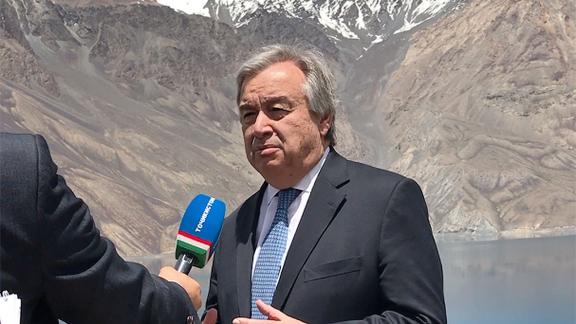Structured Dialogue with Eastern Europe and Central Asia connects climate ambition to climate finance
“Without financing, ideas, however noble they may be, will remain on paper." These were impactful words spoken during the GCF Structured Dialogue with Eastern Europe and Central Asia.
“Without financing, ideas, however noble they may be, will remain on paper." These were impactful words spoken by Mr Saidumron Nazar Abdurahmonzoda, the Deputy Chairman of the Committee on Nature Protection of Tajikistan, during the GCF Structured Dialogue with Eastern Europe and Central Asia which ended today in Dushanbe.
The last four days saw over 130 participants from 13 countries in the region taking part in discussions to strengthen their climate partnership with the Green Climate Fund, and access the climate finance needed to realise effective climate action. Tajikistan, host country of the event, is particularly susceptible to the impacts of climate change. Deputy Prime Minister HE Mahmadtoir Zoir Zokirzoda highlighted this vulnerability in his address to the meeting, stating: “Tajikistan is one of the most vulnerable countries to climate change in the world. Out of 14,000 glaciers of Tajikistan, which have a significant impact on the whole region, more than 1,000 of them have vanished over the past 30 years.”
In an interview with local journalists last year, UN Secretary General António Guterres spoke along the same lines, saying "In Lake Sarez... when we see the glaciers melting, we understand it is absolutely essential to mobilise the whole international community, to be able to fight climate change, to be able to fully implement the Paris Agreement, to increase ambition for climate change not to put in danger the future of our planet."

As highlighted in an OECD study presented at the Dialogue, the gross investment needs of the region to combat climate change are likely to amount to several billion dollars until 2030. While public finance will be critical, it will not be sufficient and should be used as a catalyst to mobilise private sector finance.
Based on the numerous interactions with the GCF team both at the Dialogue, and in the weeks leading up to the Dialogue, the countries from the region have raised their ambitions to access GCF resources. While GCF readiness funding for the region (support to build capacity for climate action) amounts to USD 8.8 million, it is expected that over the coming years, this figure may rise to USD 20.7 million.
Likewise, the pipeline of projects for the region, including both new and approved proposals, is expected to reach USD 2.9 billion in the coming two to three years. The priority sectors for action are expected to be health, food security, renewable energy, energy efficiency, and transport.
In achieving these ambitions, it was recognised during the meeting that strong partnerships between governments, private sector, international actors, and of course the GCF will have to be forged. The Dialogue was successful in clarifying the process for accreditation, as well as highlighting the different options for actors to engage with countries, including in the role of delivery partners, executing entities, as well as providers of technical assistance.
The four-day GCF Structured Dialogue offered an important platform to facilitate exchanges of information, experiences, and challenges that need to be tackled to make progress on the climate change challenges in this vast region.